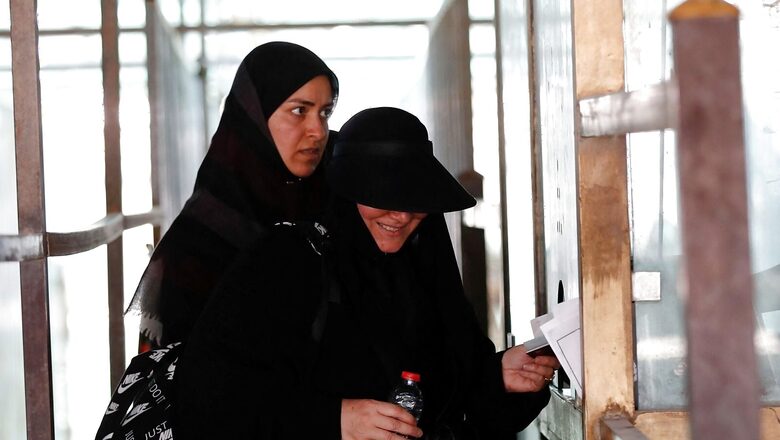
views
The death of 22-year-old woman in Iran, following her detention by the country’s “morality police”, has sparked anger among women in the Islamic country who were seen chopping their hair and burning their hijabs to protest Mahsa Amini’s “killing” and calling out “dictatorship” of Supreme Leader Ayatollah Ali Khamenei.
Amini’s death, who fell into coma last week hours after the morality police held her for allegedly breaking the hijab rule, has put a final nail in the coffin for women who are reeling under everyday discrimination in terms of dress code, healthcare, freedom to sing and dance, education, jobs and even entering a public place like a stadium.
In domestic cases, men are considered heads of the household with authority over their wives. A man is granted a divorce with a simple request while a woman has to fight strenuous legal battles to get released from a marriage.
According to Human Rights Watch, workplace discrimination is rampant at all levels. Managers can specify gender preference for a particular role, and women are unlikely to get those jobs, which require frequent travel. They are even banned in certain fields of study.
There are other forms of restrictions against Iranian women:
Dress Code: Women are supposed to wear loose clothes, and their head should be mostly covered in Hijab. Women often wear a long dress/ tunic to cover their legs and arms. Any violation to the dress code carries a penalty of 50,000 and 500,000 rials and a jail term of 2 to 12 months.
Abortions/ Contraceptives: Earlier, the Iranian government tried to stabilise population growth by distributing free contraceptives, which caused the fertility rate to decline. The Iranian government passed a new legislation amid low fertility rate in the Middle East. The government has not provided data connecting abortions with demographic change, according to The Washington Post. Under the new law, the woman must go before a panel who will rule whether she should get an abortion done. Earlier, women could legally access abortions during the first three months of pregnancy.
Iran, being a misogynist society, has several crimes against women. The government’s draft bill called ‘Protection, Dignity, and Security of Women Against Violence’ provides a new definition of violence against women. According to Al Jazeera, the legislation defines violence as “any behaviour inflicted on women due to sexuality, vulnerable position or type of relationship, and inflicts harm to their body, psyche, personality and dignity, or restricts or deprives them of legal rights and freedoms”.
Let’s also look at violence against women in Iran:
Domestic Violence: Iran sees most number of domestic violence cases. According to the Iran Human Rights Monitor, 164 women were executed between 2010 and 2021. In at least 40 of the cases, the women were executed for killing their husbands in self-defence after suffering domestic violence. Iran has executed at least 251 people in the first half of 2022, including women defending themselves against domestic violence, according to a report by Amnesty International.
Marital Rape: Iran does not criminalise marital rape even if it happens within a forced marriage. While the draft law does define various forms of violence against women but it does not criminalise some forms of gender-based violence such as marital rape and child marriage. In addition, Iranian law criminalises consensual sexual relationships outside of marriage, punishable by flogging, and leaves women at the risk of being prosecuted for reporting rape if the authorities do not believe her, according to Human Right Watch.
Adultery: Under the interpretation of Islamic sharia law in force since Iran’s 1979 revolution, adultery is punishable by stoning. But Tehran changed the law in 2013 to allow judges to order an alternative method of execution, usually hanging. According to Amnesty International, Iran carried out 246 executions in 2020, just one in public. It gave no breakdown of the number carried out for adultery.
Acid Attacks: Victims have often been targeted with acid for not being properly veiled. A series of acid attacks were reported in Isfahan, 450 km south of Tehran, in 2015.
Read all the Latest Explainers News and Breaking News here




















Comments
0 comment